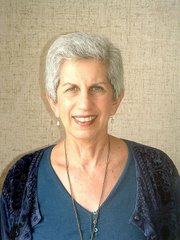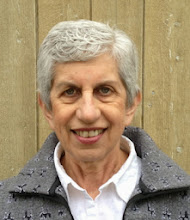
Propensity to Action
Being/becoming/doing is an orientation, a range of human propensities to action or “the nature of man’s mode of self-expression in activity” report anthropologists Florence Kluckhohn and Fred Strodtbeck.
We all have the whole spectrum in us, but we have natural preferences as well. Our preferences are guided by our beliefs in how the world is structured and also our own image in that world. For example, because I came from a highly individualized culture, where action is prized over whom you know and what you can do, my self-image is based very much upon what I have accomplished through doing. When I am not "doing", I criticize myself for laziness and lack of initiative.
"Being" is related to the spontaneous way human beings satisfy their impulses which has nothing to do with passivity or development. It lies nearer instinctual behavior. If my lips are dry, my concentration is totally on how I can get to lip balm. If I am thirsty, a drink is upmost in my thoughts and motivates my actions. Being occurs when we accept our environment, living instinctually with a certain amount of “flow” made famous by Csikszentmihalyi.
“Becoming” is a creative activity, motivated by one's will, which is triggered by our emotional, intellectual and sensuous experiences. If one believes strongly that wife battering is the root of many of society’s problems and possibly have some more personal experiences, then your activity level might drive you to volunteer at a shelter for battered spouses. It is in becoming that we can understand the workings, patterns and systemic connections in our environment.
“Doing “ is dominant in Western society and is characterized by “…the kind of activity which results in accomplishments that are measurable by standards conceived to be external to the acting individual” (Kluckhohn and Strodtbeck,1961, p.17), like succeeding in being responsible for large profits in your working situation. It is often that monetary gains are the standards conceived to be external to the acting individual". Whether our reward is monetary, status or fame depends upon what we need most. Our actions are directed to changing something, making something, as we see it, better.
The being, becoming and doing continuum influences our foresight ability. The individual focused upon “being”, is totally involved in his or her work, enjoys the work, doesn’t make a conscious effort to develop, and is not as motivated to wander into thinking about what might be.
However, an individual focused upon "becoming" might be studying what is going on around him or her and seeing links, consequences and systems. They might begin to see what future activities or trends might result from such systems. It requires a certain amount of distance and the ability to see the whole picture rather than focus upon details. Generalists, who know a little about a lot, can often see the connections between divergent situations and activities.
When the situation under our inspection becomes personally connected to our emotions or grows out of an unfulfilled need is when we move toward action and "doing". In positive situations, the activist within steps forward and tries to make a change not only for him or herself, but for others with similar problems. Watch the TV program Dr. Phil to see examples of both. Some people are just caught up in their tragedy and can only tell how they feel. Others have the ability to realize that the situation, in which they find themselves, happens to others as well.
Which propensity to action do you find yourself using at this moment? Are you able to identify personal examples of when you are “being, becoming, or doing”. One of the biggest lifestyle complaints has been that we are so wrapped up in doing that we have no time for being (playing with the kids) or becoming (watching the interaction between the people around us, or observing world patterns and systems).



No comments:
Post a Comment